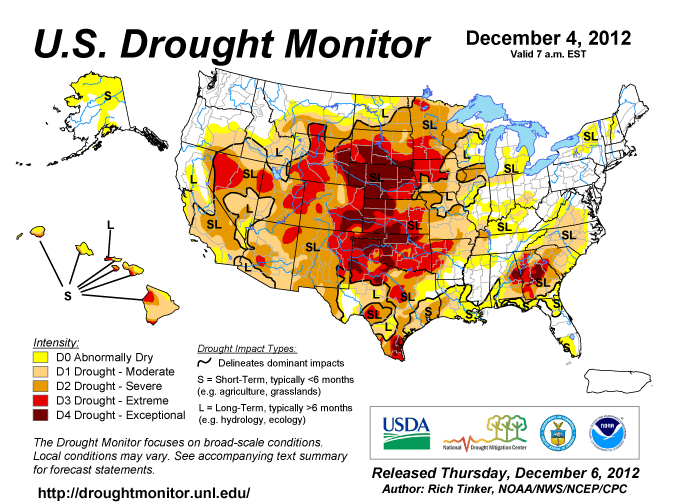You've probably heard that if no snow accumulates today, we'll break a record for the longest stretch without snow in the city's history:
WGN-TV meteorologist Steve Kahn said the drought has much to do with this year's record-breaking weather. Last winter's snowfall measured only 19.8 inches — a little more than half of the 36.7 inches marked as the average at O'Hare.
"We had an early end to the snow season — last year was notable particularly for its warm March," Kahn said. "That's why we have this record on the table now."
The winter is also starting out warm and dry. Damp and rainy as it was this weekend, it didn't amount to more than a quarter-inch, and we're still behind our usual pace of a little more than half an inch for the first ten days of December. We've only dropped below freezing twice, and not yet below 30 degrees, when on average every day in December has a low below 30 degrees.
November was unusually dry; we got an inch of precipitation, when we usually get about three and a half inches. October fell below average (2.80 inches versus 3.24 inches), as did September (1.63 inches versus 3.31); August has been the only month this year without below-average precipitation. And the Chicago area is still suffering from moderate drought conditions, with most of northern Illinois in severe drought, as it's been for much of the year.

The real burden's fallen on the area just west of us. And the Mississippi River is still running low, and grain is backing up:
After the 2008 U.S. recession, investors demanded efficiency from trucking and rail companies, so there’s not a lot of extra capacity for farmers who may need it now, said Shorty Whittington, president of Grammer Industries Inc. a transportation-services company in Grammer, Indiana.
“When you start slowing down inputs coming up the river, you stop that funnel going for the exports, and you stop certain segments, you change the price of the product drastically.” Whittington said. “It’s a humongous problem.”
The outlook? More of the same: "According to National Weather Service predictions through July, no above average periods of precipitation are predicted. In fact, the abnormally dry conditions of the summer will likely add up to a warmer and drier than normal winter." It's so bad that the Army Corps is expected to start blowing up underwater rock formations.



